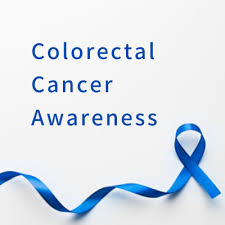Colonoscopies Dropped 86% During the Pandemic. See Why This is Dangerous
 It’s Colorectal Cancer Awareness Month and time to get back on track by getting a colonoscopy. It will take time to grasp the many ways COVID-19 has taken a toll on our health as individuals and as a society. Yet, one fact is already alarmingly clear right now – the colorectal screenings that everyone put off last year will lead to thousands of more lives lost over the next decade. The Colorectal Cancer Alliance estimated last year that pandemic fears caused the number of colonoscopies to drop sharply by 86%.
It’s Colorectal Cancer Awareness Month and time to get back on track by getting a colonoscopy. It will take time to grasp the many ways COVID-19 has taken a toll on our health as individuals and as a society. Yet, one fact is already alarmingly clear right now – the colorectal screenings that everyone put off last year will lead to thousands of more lives lost over the next decade. The Colorectal Cancer Alliance estimated last year that pandemic fears caused the number of colonoscopies to drop sharply by 86%.
“While there may be other, less invasive screening tools and tests to detect colorectal cancer, colonoscopy is far and away the gold standard for its ability to view the entire colon,” notes Dr. Robert Antonelle, Chief of Gastroenterology at White Plains Hospital. “This test is effective and safe, even during a pandemic. There is no longer a reason to delay this important, lifesaving screening.”
Age is still the biggest risk factor for developing colorectal cancer, so follow these guidelines:
If you are in your 20s or 30s…
Take this time to learn your family history and identify any risk factors. Colorectal cancer is not just a disease of the elderly. Cases of young-onset colorectal cancer, in people in their 40s, 30s and even some in their 20s, have increased by 51% since 1994, according to the National Cancer Institute.
Colonoscopies are excellent at detecting polyps, which can be removed before they evolve into cancer, which is one of the reasons the rates of colon cancer in people over 50 has gone down in recent years.
If you are in your 40s…
• Ask your doctor if you have risk factors that would suggest starting screening in your 40s.
• While the general recommendation is for average risk people to start this screening at age 50, multiple professional societies are now advocating to start low-risk screening at age 45.
If you are in your 50s…
• Average-risk patients should start screening with a colonoscopy every 10 years.
• There are several other screening methods with different abilities to detect or prevent colorectal cancer, including fecal blood and DNA tests, sigmoidoscopy (which only looks at a section of your colon) and CT colonography that scans the entire colon. Speak with your doctor about the best screening test for you.
If you are in your 60s…
• Continue screening with colonoscopy every 10 years.
If you are in your 70s…
• Colorectal screening should continue through age 75; people ages 76-85 should decide with their medical provider whether to continue screenings.
One of the mottos of this year’s Colorectal Cancer Awareness Month is “It’s Time to Get Back on Track.” Call your physician to schedule a screening and get ahead of this highly preventable disease. Dr. Robert Antonelle is the Chief of Gastroenterology at White Plains Hospital, seeing patients at 311 North Street in White Plains and 99 Business Park Drive in Armonk. To make an appointment, call 914-949-7171.
Dr. Robert Antonelle is the Chief of Gastroenterology at White Plains Hospital, seeing patients at 311 North Street in White Plains and 99 Business Park Drive in Armonk. To make an appointment, call 914-949-7171.